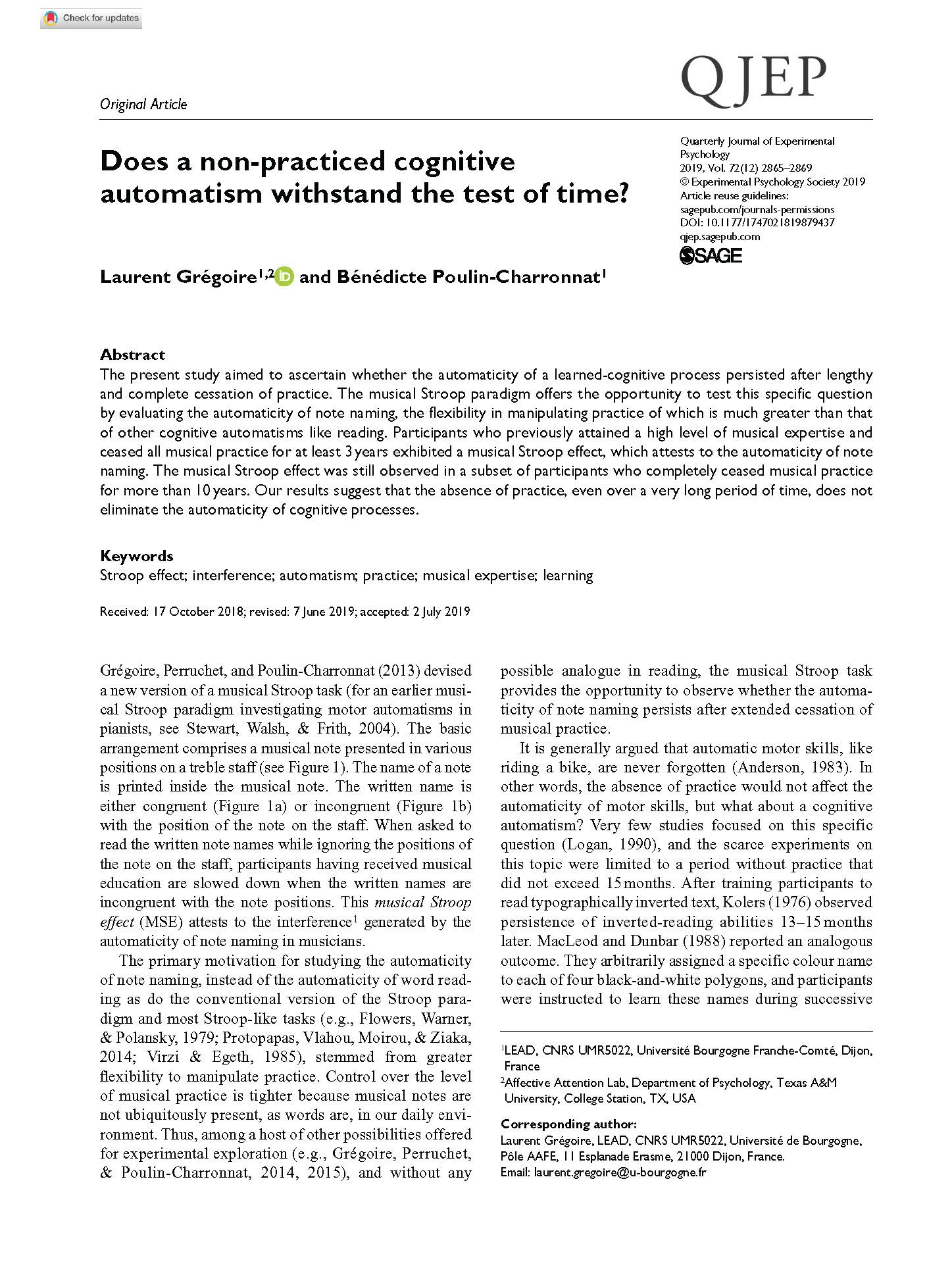The present study aimed to ascertain whether the automaticity of a learned-cognitive process persisted after lengthy and complete cessation of practice. The musical Stroop paradigm offers the opportunity to test this specific question by evaluating the automaticity of note naming, the flexibility in manipulating practice of which is much greater than that of other cognitive automatisms like reading. Participants who previously attained a high level of musical expertise and ceased all musical practice for at least 3 years exhibited a musical Stroop effect, which attests to the automaticity of note naming. The musical Stroop effect was still observed in a subset of participants who completely ceased musical practice for more than 10 years. Our results suggest that the absence of practice, even over a very long period of time, does not eliminate the automaticity of cognitive processes.
Does a non-practiced cognitive automatism withstand the test of time?
